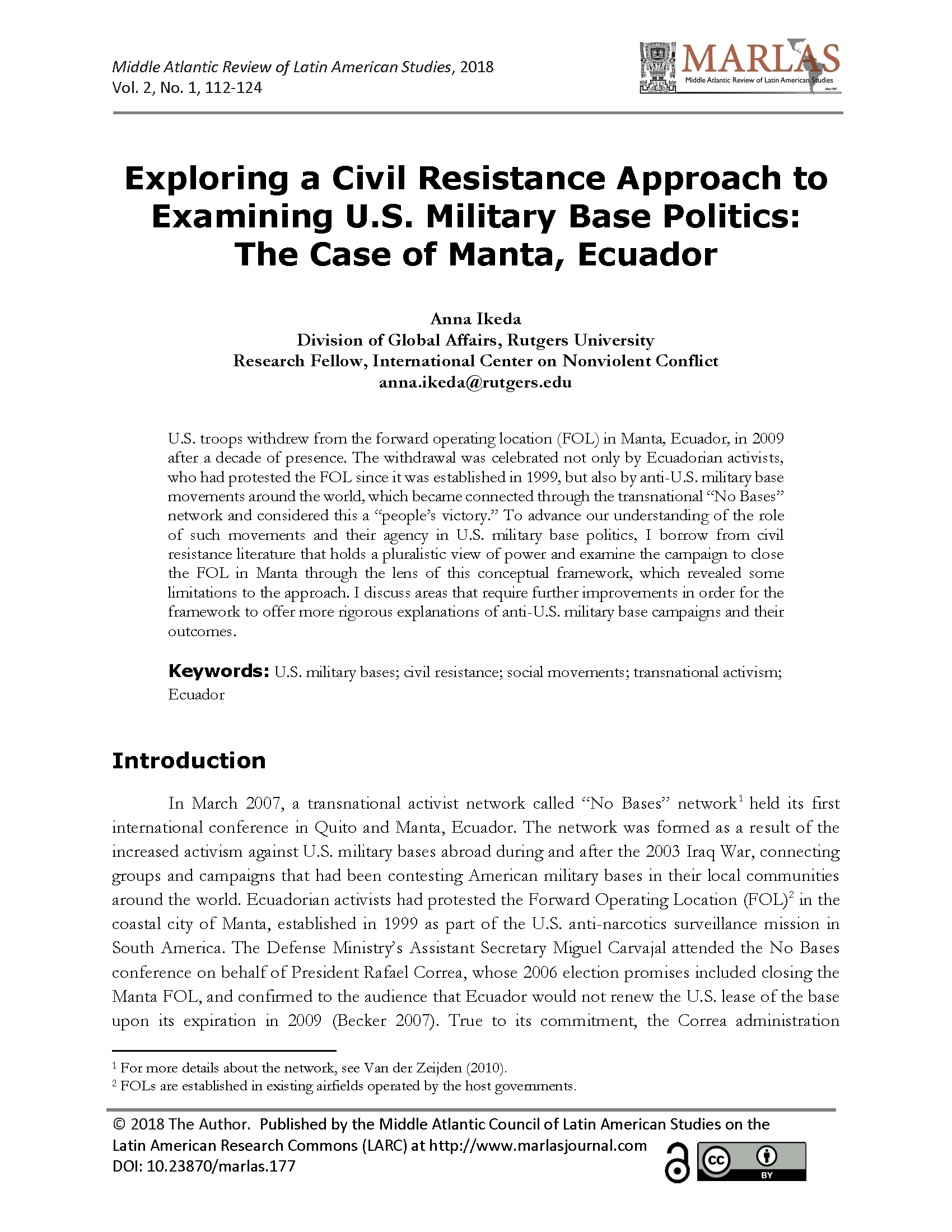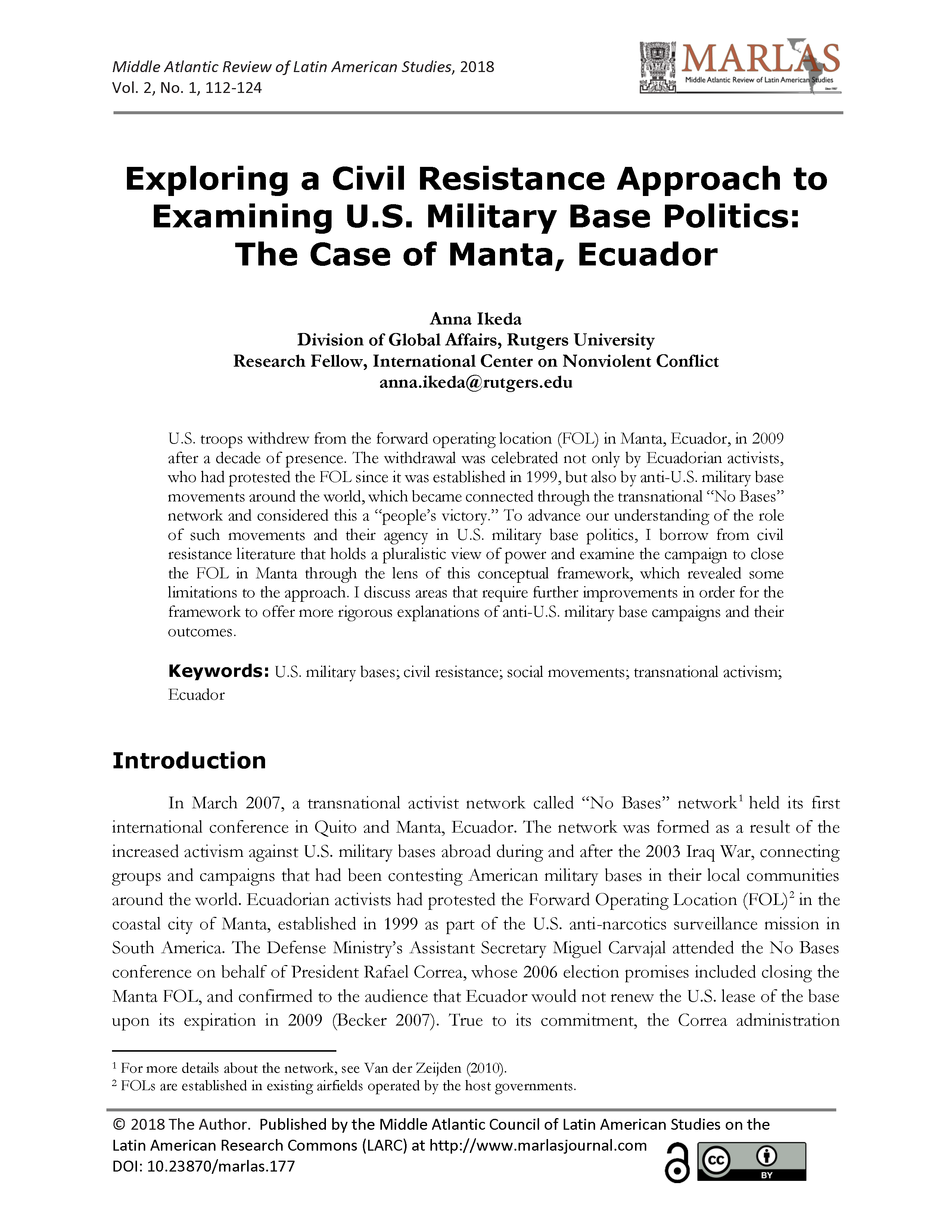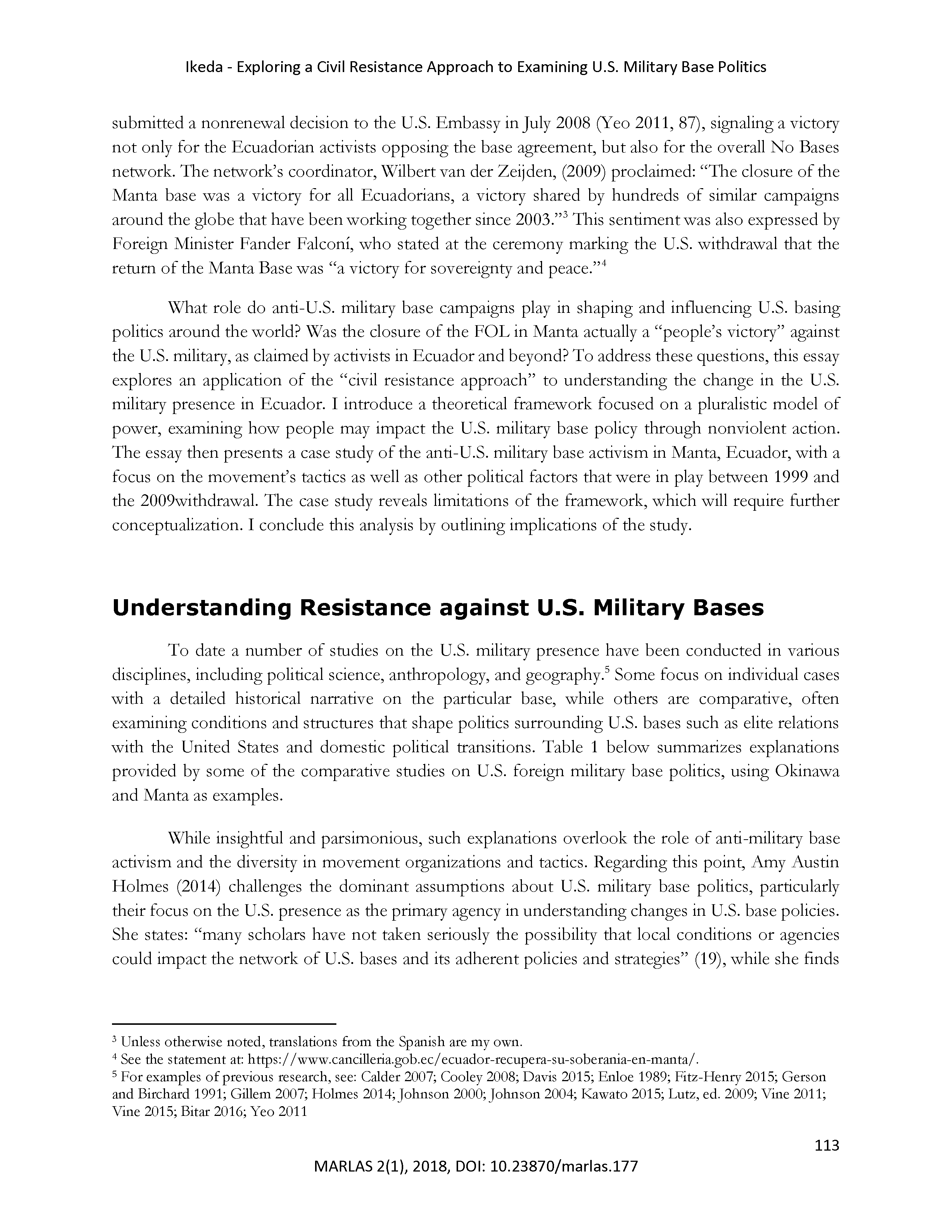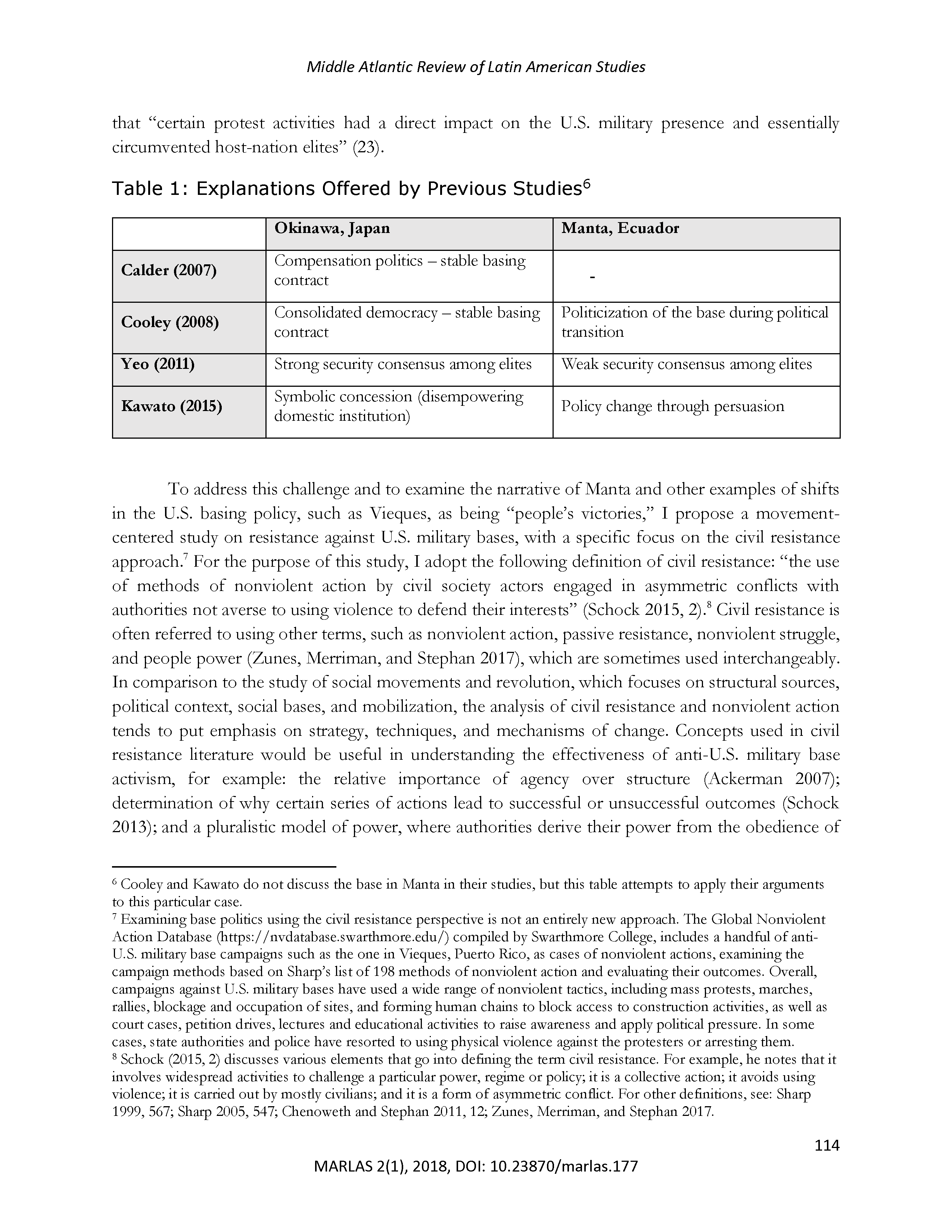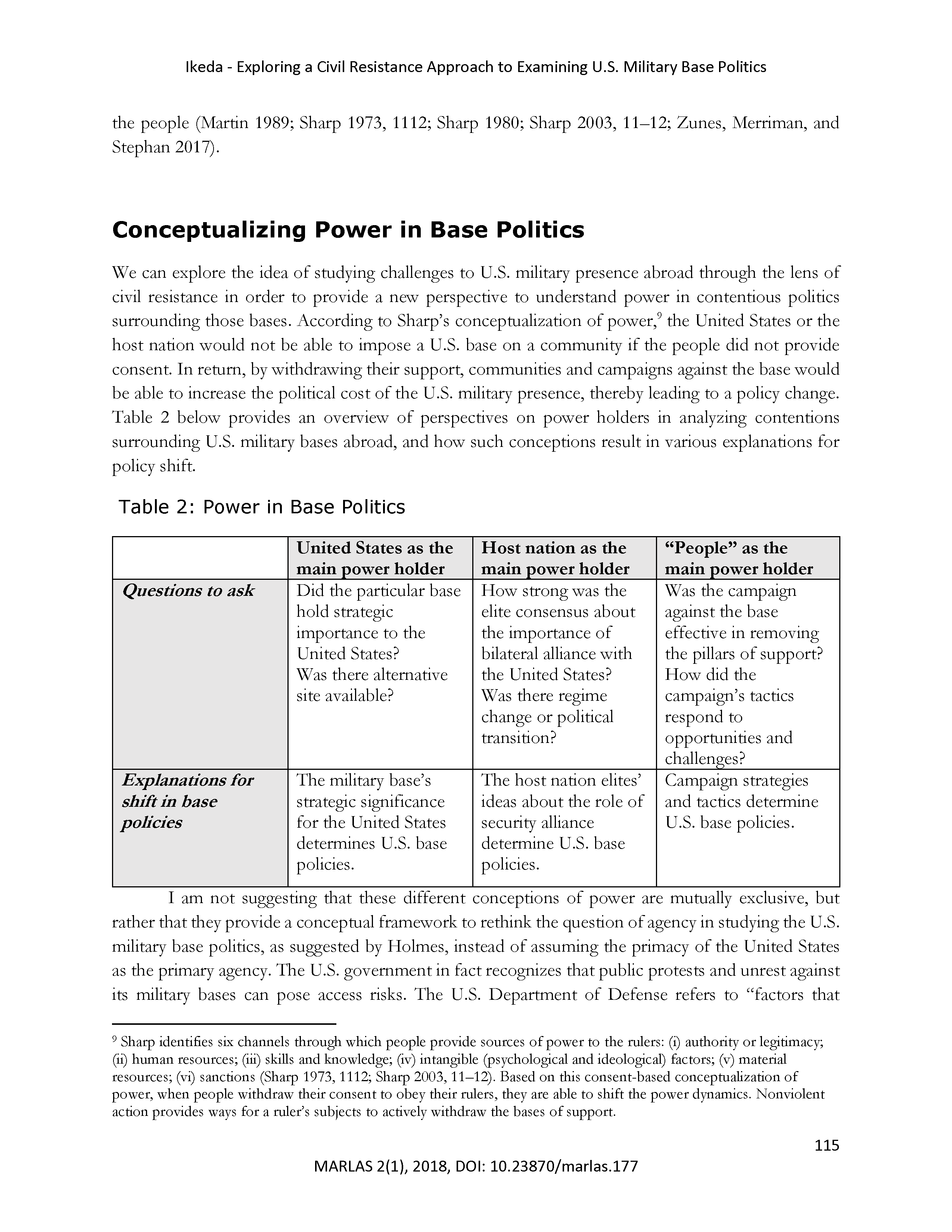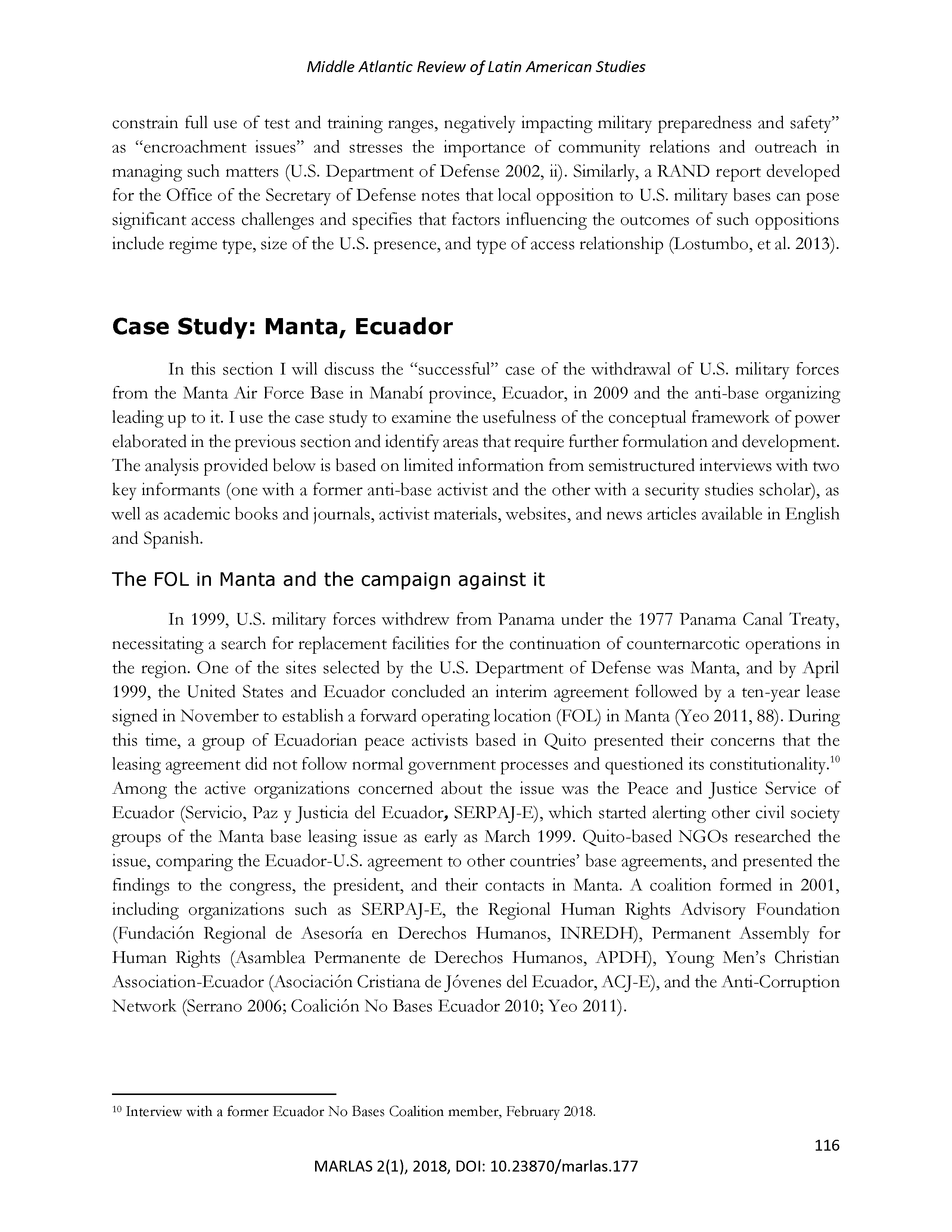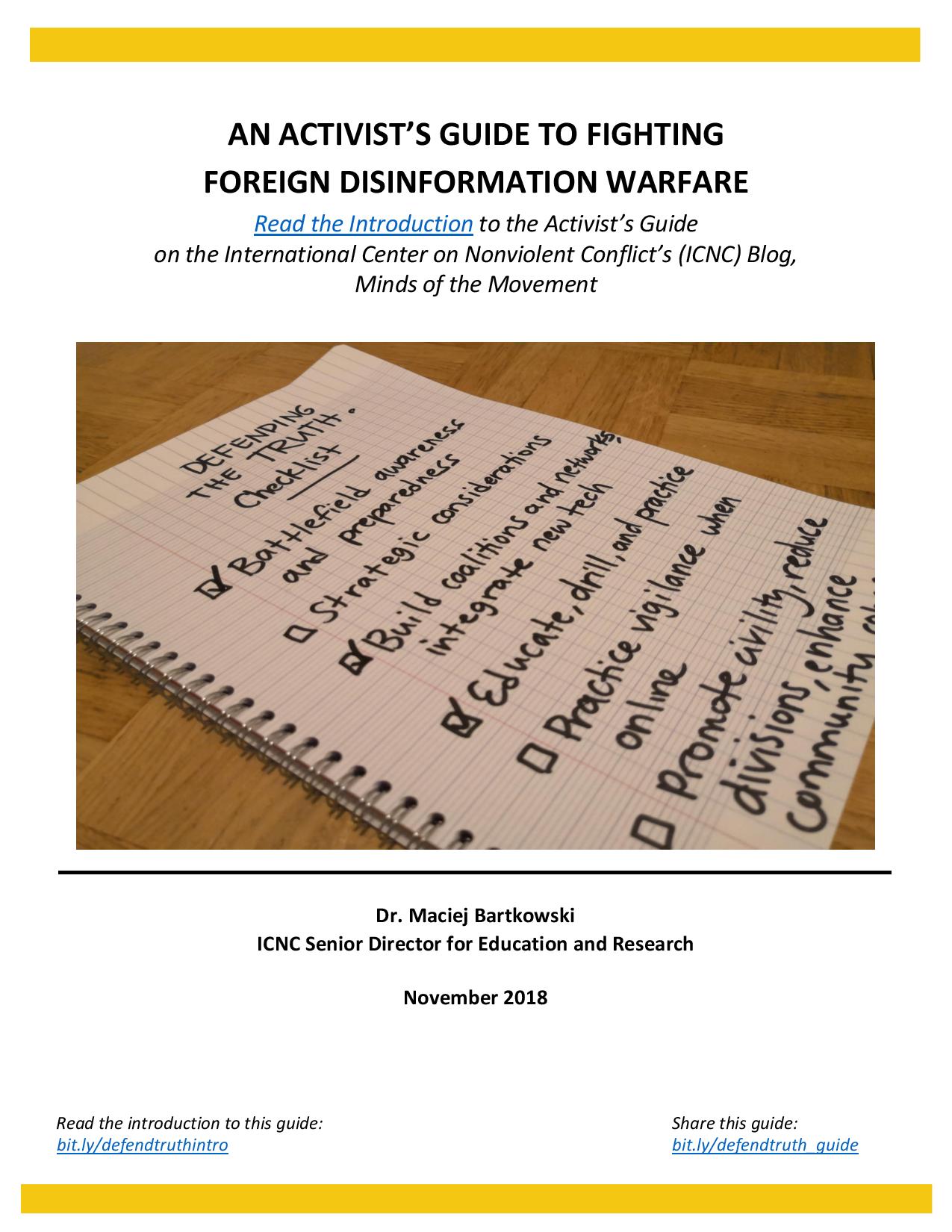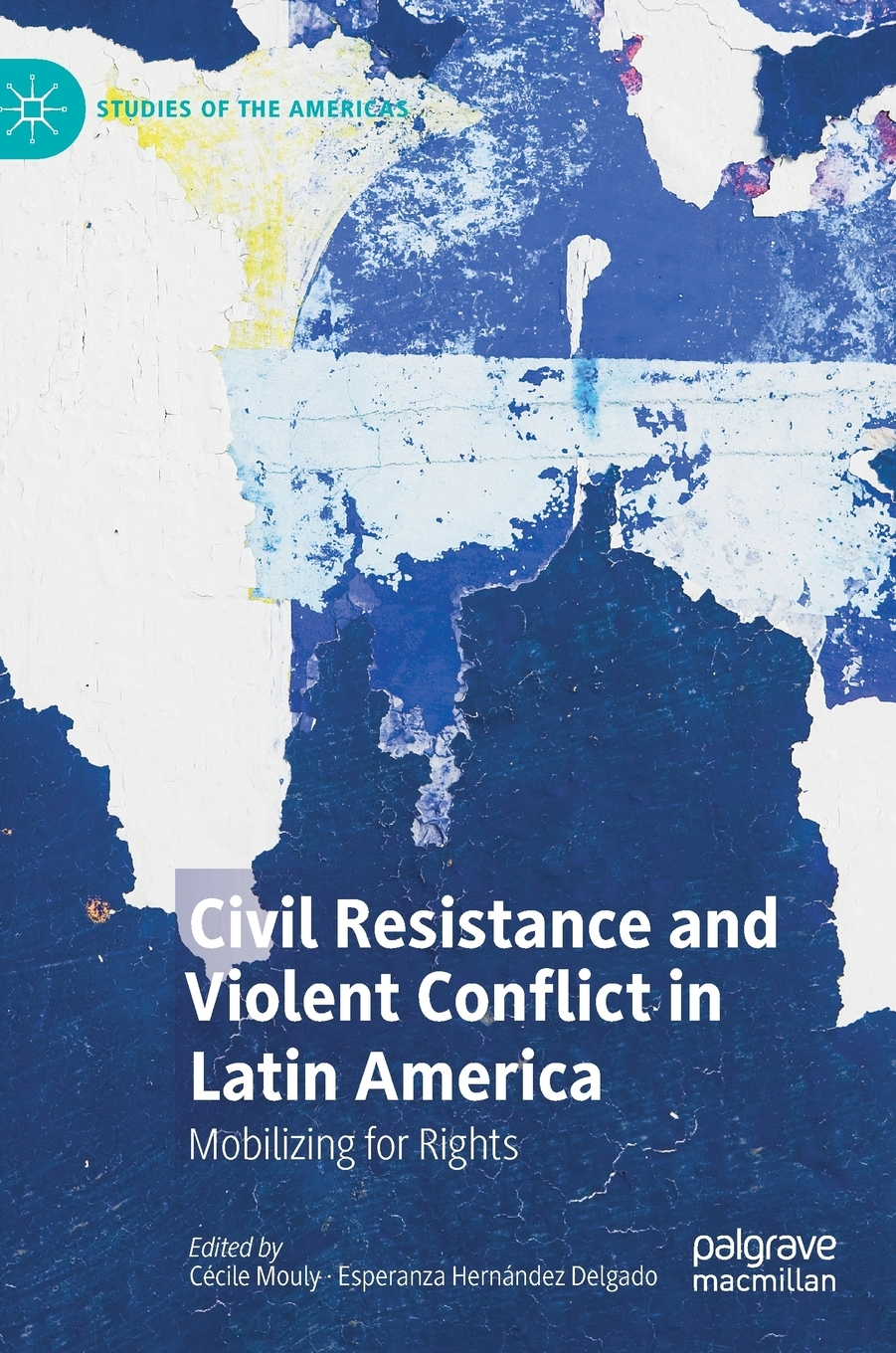Exploring a Civil Resistance Approach to Examining U.S. Military Base Politics: The Case of Manta, Ecuador
U.S. troops withdrew from the forward operating location (FOL) in Manta, Ecuador, in 2009 after a decade of presence. The withdrawal was celebrated not only by Ecuadorian activists, who had protested the FOL since it was established in 1999, but also by anti-U.S. military base movements around the world, which became connected through the transnational “No Bases” network and considered this a “people’s victory.” To advance our understanding of the role of such movements and their agency in U.S. military base politics, I borrow from civil resistance literature that holds a pluralistic view of power and examine the campaign to close the FOL in Manta through the lens of this conceptual framework, which revealed some limitations to the approach. I discuss areas that require further improvements in order for the framework to offer more rigorous explanations of anti-U.S. military base campaigns and their outcomes.
Middle Atlantic Review of Latin American Studies, 2018
Vol. 2, No. 1, 112-124
